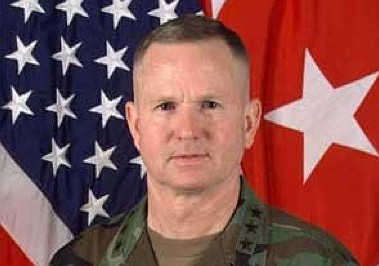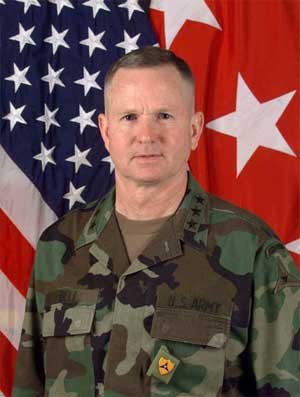View 2011 – Cities with Sunday Sales Referendums in Nov in a full screen map
The morning of the 9/11 attacks, U.S. Army Gen. Burwell "BB" Bell was on Capitol Hill in Washington, D.C., preparing for meetings.
Just a few hours before, the University of Chattanooga graduate had been in the Pentagon, preparing for the day. If he'd stayed at the military compound, he might have died when terrorists crashed a plane into the building. Several of his close friends died that day, the now-retired general said.
Three months after the attacks, Bell was allowed to return to his Pentagon office. Once there, he was handed a charred briefcase that he'd left when he'd headed over to the Hill the morning of Sept. 11.
Then commander of III Corps in Fort Hood, Texas -- a major U.S. Army tactical command unit -- Bell was in Washington to discuss funding for III Corps programs. He was on Capitol Hill when the first plane struck the World Trade Center in New York. After the second plane struck, officials began evacuating the capital.
With gridlocked traffic choking the roads, the general began walking. He found a sergeant and a vehicle and rode to Andrews Air Force Base. The 12-mile trip took nearly two hours.
On the way, he called his boss, Gen. Jay Hendrix, in Atlanta, to say he would grab a flight back to Fort Hood.
Only military aircraft were allowed to fly that day and, as Bell left D.C., he looked down at the Pentagon, seeing that the office he'd sat in hours before had been destroyed.
Q: What do you think are some of the military's successes post-9/11?
A: I am heartened that the United States has conducted a highly successful worldwide, long-term, committed and patient counterterrorism campaign. Key 9/11 conspirators including Osama bin Laden have been killed or captured. I pray that we will continue the worldwide effort and not allow ourselves to be unsuspectingly ambushed again.
Q: What are some things that you think have not been handled well post-9/11?
A: I am disappointed that in conducting successful counterterrorism operations with special operating forces, the U.S. has simultaneously become bogged down in long-term conventional nation-building and counterinsurgency campaigns of highly questionable value. While I aggressively support our worldwide efforts to kill or capture radical terrorists who would do harm to our nation, I do not believe long-term nation-building efforts are in the best interests of America.
Q: What are your concerns regarding those who've sacrificed their lives or lives of loved ones in the war on terror?
A: I regret the large loss of life and injuries in the ongoing campaigns. These losses include those innocents killed and injured in the 9/11 attacks, along with the thousands of service members killed and injured in fighting. All these people are great and historical American patriots and signify another Great Generation, no less capable than the Greatest Generation of the World War II era.
Q: What are your views on the future of the war on terror?
A: I am hopeful that the United States will remain united in a long-term commitment to protect our homeland through aggressive counterterrorism operations overseas, and through effective police work here at home to ensure home-grown radical Islamist terrorists are not successful in attacking us from within.

